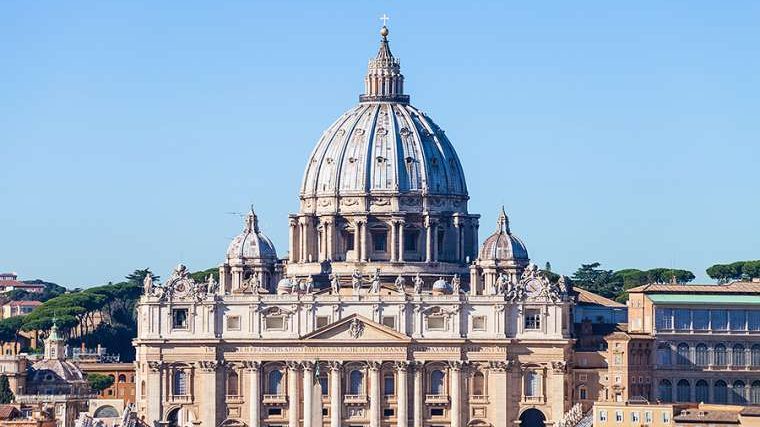Members of the Vatican's financial watchdog authority met this week to update offices on regulations to fight money laundering and the financing of terrorist organizations.
The June 15-16 seminar was held by the new leadership of the Financial Information Authority (AIF), including president Carmelo Barbagallo and vice director Federico Antellini Russo.
“The Vatican regulations are in line with the regulations of the rest of the world,” Barbagallo told Vatican News. “They have also recently been renewed, in particular the law on procurement is at the forefront.”
Barbagallo referred to a law promulgated by Pope Francis June 1 on the awarding of public contracts. The new norms are intended to prevent corruption, including nepotism, money laundering and other crimes in Vatican City State and Holy See financial transactions.
Russo told Vatican News that the Holy See had taken “significant pioneering steps” in financial security legislation and wanted to extend “not only training but also a form of prevention, of awareness and in some ways of support also to the public authorities of the Holy See, of the Vatican City State.”
The public authorities of the Holy See and Vatican City State are the entities which carry out financial transactions with members of the general public, such as the Vatican post office, supermarket, and pharmacy.
Vatican public authorities also include the Institute for the Works of Religion (IOR) and the Administration of the Patrimony of the Apostolic See (APSA).
At least one official of the Secretariat of State also took part in the two-day meetings.
Anita Titomanlio of the legal office of the Secretariat of State told Vatican News “we wanted to propose tools to public authorities to evaluate themselves.”
“Then self-assessment questionnaires will be prepared, which will be filled in by the public authorities and sent to the financial information authorities to prepare an action plan, should there be any deficiencies in the fight against money laundering and terrorist financing.”
Barbagallo also noted the increased threat of crime which comes with the global economic crisis caused by the coronavirus emergency.
“And so this is a time when you absolutely have to have your eyes more open than usual,” he said.
The AIF is expected to release its annual report soon. The report usually catalogs the Suspicious Activity Reports received over the previous year and which led the information authority to investigate cases of money laundering and financial fraud within Vatican financial entities.
This will be the first report of the Vatican’s Financial Information Authority since an abrupt change of leadership at the end of 2019.
AIF’s then director, Tommaso Di Ruzza, was suspended at the end of September 2019 after a search of AIF offices by Vatican gendarmes. Five days later AIF president René Brüelhart resigned. His replacement, Carmelo Barbagallo, was named by Pope Francis at the end of November 2019.
Meanwhile, the Egmont Group, through which 164 financial authorities share information and coordinate their work, had suspended the AIF in mid-November. Barbagallo announced in January 2020 the suspension had been revoked and the authority could resume collaboration with foreign intelligence bodies.
Barbagallo signed a memorandum of understanding with the interim auditor general, Alessandro Cassinis Righini, June 16, in order to strengthen collaboration between the AIF and the auditing office.
According to a Vatican communication, the memorandum “will allow for better fulfilling the roles assigned by the Vatican organization...” The Office of the Auditor General and the AIF will have “periodic meetings at both a strategic and operational level.”
This report has been updated to include the memorandum of understanding between the Vatican Financial Information Authority and the Office of the Auditor General

